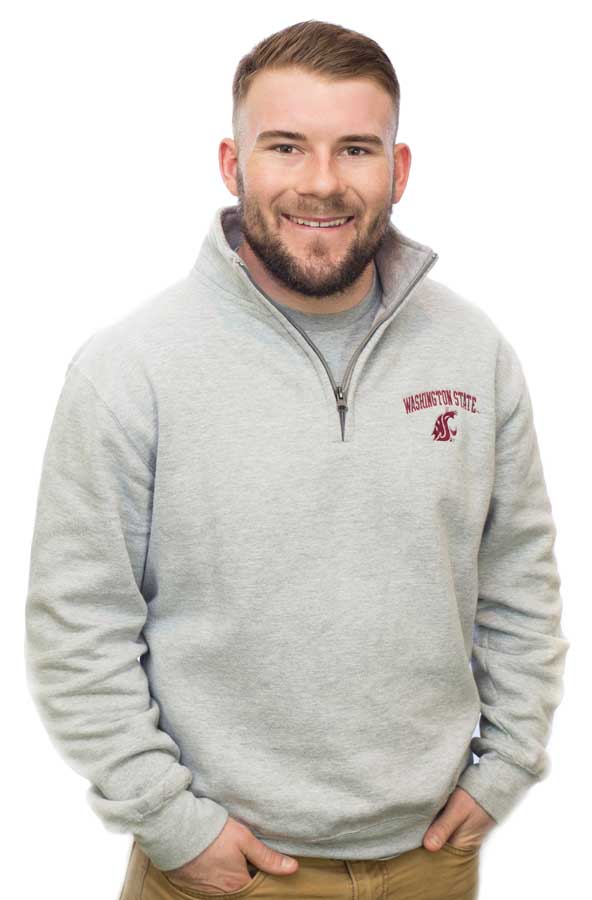background / After originally pursuing a degree in history and law, Nick pursued a more hands-on career through Washington State University’s viticulture program. He was hooked after the first couple of weeks of classes. Mercer Canyons, south of Prosser, Washington, hired him right out of college.
age / 23
crops / Wine grapes
business / Vineyard manager at Mercer Canyons
 How did you get your start?
How did you get your start?
My grandpa was a dryland wheat farmer in Kahlotus, Washington, and farming’s pretty much been part of my family. In college, I spent my summers working on my dad’s small 12-acre estate vineyard on Red Mountain.
That’s how I got my introduction into vineyard work, about when I was 12 years old. I like the freedom of being outdoors. There’s something to it — you don’t have a boss breathing down your neck all the time, you know what needs to get done and you find a way to do it.
What are your main tasks?
When I started at Mercer Canyons, I was basically responsible for irrigation. So that included scheduling, one of my biggest responsibilities. It’s very crucial to wine grapes.
With it you can control the canopy and grape quality by knowing when to stress the vines by restricting water at the right time. Also to control active growth after verasion time, which is after the berries start changing colors and begin accumulating sugars.
We don’t want the canopy to continue growing because it begins to produce a different type of carbon structure that doesn’t help the wine quality in the end.
What are some of your challenges right now?
Controlling water delivery on 2,000 acres of vines with very limited access to soil moisture probes and not having much of a crew that is able to perform pressure bomb testing and things like that.
It comes down to something I call roadside viticulture — essentially driving around in your truck and probing the ground yourself and making decisions based off your own findings.
Recently I’ve been promoted to take on all of the hand-labor crews, which ups my responsibility from about seven to eight guys to about 100.
Beyond the irrigation, with the hand crews, we’ll be doing all the pruning, tying, raising and lowering wires, leafing, cluster thinning and a plethora of other tasks in the vineyard.
What’s new for you with irrigation management?
We’re working with a researcher from the University of California-Monterey Bay who’s developed a model that uses Landsat imagery, soil types, existing irrigation data and pressure bomb data to see when the plants are stressed.
For instance, you lay down an acre-inch of water into the soil, then you do a pressure bomb test on every block and you take your readings and plug them into his model.
With all of the data, he can figure out if your canopy is still growing, if active growth has stopped, if your vines are stressed or if you need to water. If that model works for a large-scale vineyard, I believe that would really help the future of irrigation.
What would you tell others about being a farmer?
After changing degrees toward viticulture, the work I put into obtaining the degree was more applicable to what I’d be doing after college. It provided me a foundation to come out of college and get a job.
I hear so many stories about folks having a degree in a particular field, but they can’t find a job anywhere. If you go through the viticulture and oenology program and you’re motivated and ready to use the knowledge you’ve learned — especially in the Washington industry — then you’re going to find a job, and you’re going to do great in it.






Leave A Comment